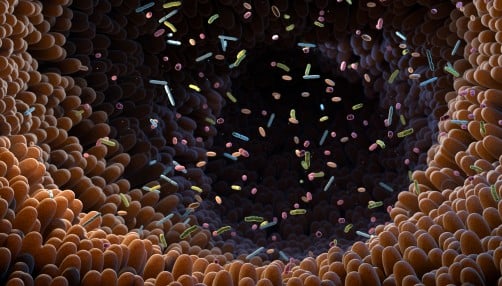URGENT UPDATE: A groundbreaking study from UCLA Health reveals that a child’s gut microbiome at just 2 years old may significantly influence their risk of developing depression and anxiety by middle childhood. Published today in the journal Nature Communications, this research could reshape how we approach early mental health.
The study, led by Dr. Bridget Callaghan, demonstrates that children whose gut bacteria include higher levels of microbes from the Clostridiales order and Lachnospiraceae family are more susceptible to internalizing symptoms—encompassing anxiety and depression—by the age of 7.5 years. This alarming connection is attributed to the way these bacteria impact emotional brain networks, suggesting that early gut health could program brain circuits crucial for emotional well-being.
Authorities report that the research utilized data from the ongoing Growing Up in Singapore Towards Healthy Outcomes (GUSTO) study, focusing on children’s health trajectories. Over 55 participants were analyzed, linking stool samples collected at 2 years and resting-state MRI scans conducted at 6 years to behavioral surveys at 7.5 years.
Dr. Callaghan emphasized the importance of these findings: “By linking early-life microbiome patterns with brain connectivity and later symptoms of anxiety and depression, our study provides early evidence that gut microbes could help shape mental health during the critical school-age years.”
Previous investigations into the gut-brain axis have primarily focused on infants, leaving a significant gap in understanding the implications of gut health on school-aged children’s mental health. This study fills that gap, showcasing the potential cascading effects of early gut microbiota composition on mental health outcomes in later childhood.
The implications of these findings are profound. If untreated, symptoms of depression and anxiety can lead to long-lasting mental health issues as children transition to adolescence and adulthood. The study highlights the urgent need for further research to ascertain whether the identified microbial patterns are causative.
Dr. Callaghan noted, “We need to figure out what species within these larger groups are driving the findings. Once we have that information, there are relatively straightforward ways to change the microbiome, like probiotics or diet, that we could use to address issues.”
The research is a collaborative effort involving prestigious institutions such as the Agency for Science, Technology and Research (A*STAR), KK Women’s and Children’s Hospital, and the National University of Singapore Yong Loo Lin School of Medicine.
As mental health challenges continue to rise globally, this study serves as a crucial reminder of the intricate relationship between gut health and emotional well-being. Parents and caregivers should be aware of these findings and consider the implications for their children’s health and development.
Stay tuned for further updates as researchers delve deeper into this critical area of study. The potential for interventions in early childhood through dietary changes could pave the way for healthier emotional outcomes in future generations.







